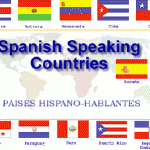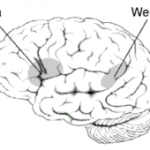It’s A Culture Thing – HW4
(Pg. 444)
14a. Phonological
b. Syntactic
c. Phonetic (?)
d. Semantic
e. Syntactic
f. Phonological
(Pg. 445)
16a. Some (Non-Native)
b. Natural
c. Non-Native (Some)
d. Some
e. Some
f. Non-native
g. Natural (Some)
h. Some (Natural)
i. Natural
j. Natural
k. Non-native
l. Some
m. Natural
n. Some
o. Non-Native
(Pg. 446)
17a. Bucket
b. Bag
c. Curtains, Blinds
d. Soda
e. Fireflies, Lightning Bugs
f. In Line
g. Clean It Up, Straighten It Up
h. You Guys
i. A Quarter Til 5, A Quarter To 5
(p479)
exercise
- what are some of the competencies that are part of communicative competence?
grammatical, socio-linguistic, strategic,discourse
- how does cultural competence differ from linguistic competence and from performance?
cultural has to do with the background of where you were raised with how you know how to use that intellect that you have acquired in that region which not have much significant change in linguistic competence rather performance because this is acquired through individuals which in essence would every from person to person.
- what is an adjacency pair? make a list of five adjacency pairs in american english not mentioned in the chapter.
adjacency pair is a unit of conversation that contains an exchange of one turn each by two speakers.
taking turns, question and answer, complaint ( excuse/remedy), degreeting, offer ( accept / reject)
(P480)
based on my own experience power relationship can be established by winning the person over by acting nice, helping them over and trying to bribe them in a established conversation. i think bribe can be indicative and acting nice as opposed to someone acquiescing. in my experience it can be inherited and socially because one without the other would not function right. its like the example of tea without the water. tea within it self is leafs but without the right format or right tools would not make it tea rather just plan leafs. that is why water is the essential in order to make tea what tea is.
(P482)
28)
- how i and my friend greeted today was how we did our homework today in linguistic 501 his response was “i forgot to type it” and “i said me too”.
- i ate tortoise today and prayed, talked about grammar and how linguistic 501 professor was funny.
- my instructor started class by pronouncing the word “e” in arabic and referring to it as an “and” and by talking about the non grammatical words that do not need to be there which included some words that i can’t mention which made me laugh really hard.
(P557)
- We know that there was a proto-Germanic language because, like Latin, we can see influences in many different languages that would all point back to this origin language.
- We spell words with a silent k even though we do not pronounce them because in Old and Middle English, these words pronounced the k. But, over time, English has been spoken with it, leading to the confusion.
(P561)
- Another example would be was and been for the “to be” verb.
(P562)
29)
- Old terms: mouse, the web, disks, desktop, google
New terms: flash drive, internal processor, laptop, youtube
We are able to associate certain computer lingo to real world items because they remind us of them, either visually or conceptually. But some things just do not remind us of anything that is already named, so we have to come up with a term for it based on what it is or how it performs.
- For the words in this list, I think that extension has occurred because our speech using those words has become so associated with computers that it is our natural instinct to think of the computer terms before the old terms, but the old terms are still there.
(P563)
33)
- Cynic: A member of a school of ancient Greek philosophersfounded by Antisthenes, marked by an ostentatiouscontempt for ease and pleasure. -Elevation
- Hacker: A person or thing that hacks or cuts roughly. -Reduction
- Anecdote: An accountregarded as unreliable or hearsay. -Reduction
- Grotesque: A style of decorativepainting or sculpture consisting of the interweaving of human and animal forms with flowers and foliage. -Degradation
- Parakeet: A smallparrot with predominantlygreenplumage and a long tail. -Reduction
- Leer: Look or gaze in an unpleasant, malicious, or lascivious way. -Degradation
- Captivated: Attract and hold the interest and attention of; charm. -Extension
- Paisley: A distinctiveintricatepattern of curved, feather-shaped figures based on a pine-conedesign from India. -Extension
(P513)
- Extensive borrowing is not a threat to a language. Languages will evolve on their own over time, as history has shown us. The borrowing of words from other languages will only help to advance the language as each “current” usage of the language is formed (i.e. from Middle English to Modern English).
(P516)
- I was only able to understand parts here and there and the overall meaning of the entire passage is difficult to understand. Questions have a consistent starting phrase, one in which English uses: “So now…”.
- This passage was fairly easy to understand. Many of the words used were English words, but some were not and so they needed the context of the English words to make sense. Words like “dees” and “islan” were easy enough to translate into “these” and “island” respectively.
(P517)
- Preventing endangered languages from dying out or reviving dormant languages would be a worthwhile, so long as the language would be taught as something more than simply ‘keeping a language alive’. Teaching people how to speak the Miami tribe language would help preserve the language, but would not serve much of a functional purpose beyond that. People would know the language, but would not use it to communicate at a regular rate. It would be like teaching 21st century Americans Middle or Old English: the language would still be around in the minds of those who knew the language, but they would only be able to communicate using it with other who knew the language, which would be far and few between.
Through time, we see that as people interact with others, their customs mix to make new ones, including language. Time, place, and people have a great impact on the very form of communication that makes us humans so unique. It is also narrowed to peoples race, age, sexuality, ethnicity, and community that makes language such a shared yet different phenomenon.
-By John Rivera, Muhammad Sabbir Abassi, and Raul Millan




 D5 Creation
D5 Creation
Comments are Closed